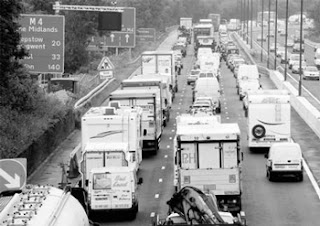The BBC figures show
that as result of assaults on Police some
494 days were lost in Dyfed-Powys over three years, 568 days in Gwent
and 673 days in the South Wales force. Along with the temporary loss of
officers who were unavailable for duty there was a knock-on financial cost,
which the BBC has estimated to be around £189,800.
This is not good
news, as our Welsh Police forces are also under continuing pressure to reduce
costs, as part of Con Dem Westminster government's public spending review
(which began in 2010) which include an intention to reduce or cut central police
funding by 20% by 2015. What this means more locally is that collectively the
Welsh Police forces will have to make total savings of £ 96 million – which will mean a
loss of jobs (amongst both Police officers and support staff) and a reduction
in the service offered to the public.
At least as far as
the law is concerned attacking or assaulting a police officer is still seen as
an aggravated offence in the eyes of the law, and could carry a custodial
sentence of up to six months. Speaking as an ex journalist, who in a previous
life spent more than enough time covering Pontypool and Cwmbran magistrates
court in the late 1980’s and early 1990’s, that was not the case then, and I
suspect that it is mostly certainly not the case now.
Now I am not and have
never been one of the hang them and flog them brigade (I leave that sort of
posturing to lightweight Tories), I and no doubt many people consider it
unacceptable when public servants (whether Police Officers, Ambulance service
staff and Doctors and Nurses in casualty) are attacked or assaulted while doing
their job. What’s needed is a balance be achieved between deterrence and the
consequences of an assault and restorative justice?
That said the news that some 10,160 incidents of
serious violence were informally dealt with last year (that is almost 12 times
the figure from five years ago) has raised more than a few eyebrows. This is
apparently contrary to existing Association of Chief Police Officers (ACPO) guidelines,
which recommend that such resolutions should only be used for low-level crime.
The Police it reveals
regularly use "community resolutions", which may include an apology
or compensation to the victim, instead of prosecutions and cautions, despite
ACPO guidelines. Now there are times when for lower level offences the use of
"community resolutions" is entirely justified and entirely good sense.
What this may suggest is that the criminal justice system is creaking and that
any crime statistics produced should be looked at with more than a serious
degree of caution if not a serious dose of incredulity.
Now I have had my suspicions about crime statistics
(whether UK wide or more local) for a while, I am aware that there is a level
of anecdotal dissatisfaction particularly with the police response to what they
may perceive as lower level anti social behaviour related crime. The perception
rightly or wrongly is that while this type of crime may be less important to
our hard pressed police officers it remains important to the residents of various
parts of Gwent (and no doubt elsewhere). More than a few times it has been
related to me personally that when called they (the Police) just don’t come.
I think that taken as
whole our creaking criminal justice system may be reaching the point where it
is failing to function, it is nether providing restorative justice or dealing
with cranial behaviour, let along providing an adequate degree of protection to
public servants going about their work. I think that the sooner criminal
justice and policing are devolved to Wales the better, that way we can at least
try to ensure that our communities are properly protected and the interests of
justice are served.


















